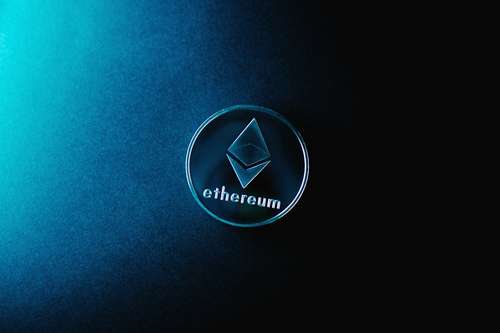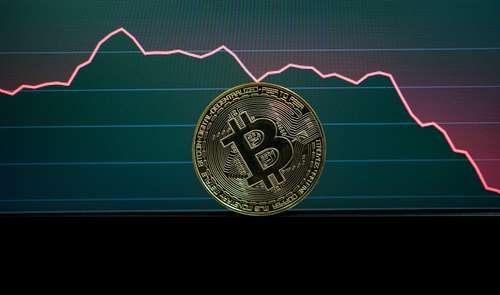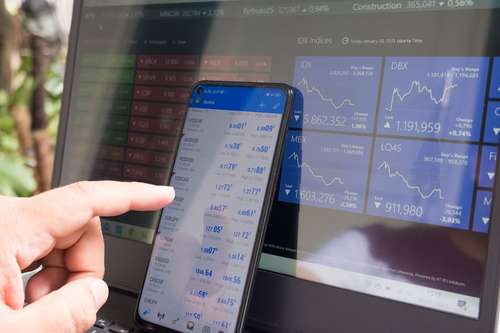BlackRock's recent strategy to tokenize shares of its $150 billion Treasury Trust fund has stirred up conversation in both the traditional finance scene and the digital asset world. This initiative is not just about riding the blockchain wave; it's a clear demonstration of how even the titans of asset management are embracing modern technology to reshape investment practices. You might ask, why would an asset management company consider tokenizing shares? Well, it all comes down to boosting transparency and streamlining record-keeping.
Imagine trying to track every share, every movement, every transaction in a trust fund using paper records and conventional databases. Now, picture doing that on a blockchain where every change is permanent and secure. That’s the promise here—a future where trust and precision are the cornerstones of investment management. The familiar world of tesla stock or tsla stock investing is gradually being complemented by innovations in digital assets like litcoin and even tokens representing shares of traditional funds.
BlackRock's Bold Move into Digital Assets
BlackRock is stepping into uncharted territory with its move to tokenize a portion of its Treasury Trust fund. This decision, as revealed in an SEC filing, signals a move to embrace blockchain technology on a grand scale. It's a significant leap for an asset management company that has traditionally relied on conventional methods of managing large-scale investments.
The adoption of blockchain for such a sizeable fund is both symbolic and practical. It shows that BlackRock is not only aware of digital trends but is actively integrating them. Tokenization of shares means that the records of ownership are now stored on a decentralized ledger that everyone can verify. This could drastically reduce the room for error and fraud in transactions, much like how transactions in google stock or amzn stock are meticulously recorded in digital systems today.
This bold step is reminiscent of when early adopters first started using digital tools to manage traditional investments. It’s about bringing clarity and efficiency to a world often marred by bureaucratic processes and delays. When you think about it, this move may well set off a domino effect, encouraging other investment firms and even stock markets, like meta stock or googl stock, to explore similar blockchain applications in their operations.
The Power of Blockchain and Tokenization
With this new digital share class, BlackRock is leveraging blockchain technology through BNY Mellon to manage the fund. The idea here is that tokenization gives an immutable record of all share transactions, thereby ensuring that the history of ownership is transparent and verifiable. It is almost like swapping out an old, smudged ledger for a shiny, digital ledger that everyone can trust.
Blockchain's role in digital asset management is not just a fad. Its benefits extend to more secure, faster, and more efficient transactions. Consider the analogy of upgrading from a regular check to an instant money transfer. In investment terms, it simplifies processes for asset management companies handling portfolios that might include diverse investments from tsla stock to pltr stock. Not only does this sort of system provide greater security, but it also enhances liquidity and could potentially lead to lower transaction costs.
Furthermore, tokenization could also attract investors who are familiar with the world of cryptocurrency and digital ownership. Imagine someone who regularly invests in digital assets like litcoin diving into a world traditionally dominated by bonds and stocks. With BlackRock's initiative, barriers between the traditional and digital finance spheres begin to blur, offering a more integrated financial ecosystem.
This use of blockchain technology is a real testament to how traditional asset management is evolving. As record-keeping and transparency become paramount, it's like moving from a flip phone to a smartphone: everything becomes more intuitive and interconnected. Investors in investment vehicles like google stock and tesla stock will likely appreciate the added layers of security and trust that come with blockchain processing.
Implications for the Broader Financial World
The tokenization of BlackRock's Treasury Trust fund may well have ripple effects in the wider financial landscape. Many observers feel that this could drive broader adoption of blockchain technology across other asset classes, influencing everything from start-ups to the trading of established stocks like meta stock and amzn stock. It raises a critical question: Could this move redefine how we think about ownership and the management of financial instruments?
For traditional institutions used to handling physical or centralized digital records, this shift represents both a challenge and an opportunity. It’s a bit like upgrading an old car with a state-of-the-art navigation system—suddenly, you can see the road more clearly, avoid potential pitfalls, and get to your destination faster. BlackRock’s initiative could serve as a blueprint for others in the industry, inspiring a wave of modernization that integrates advanced technology with established financial practices.
This development is also a call to action for tech companies and financial innovators alike. Consider how investment platforms are fusing traditional market dynamics with the flexibility of blockchain. Even analysts watching the movement of tsla stock and googl stock are becoming increasingly convinced that the future of finance might lie in such integrations. There are numerous possibilities here, from reducing counterparty risks to offering more agile and responsive asset management systems.
Moreover, the increased transparency tied to blockchain could lead to a more trusting investment environment. In an era when digital privacy and data integrity are of utmost importance, the undeniable record-keeping capabilities of blockchain could become the gold standard. This is reminiscent of the early days of digital banking when many were skeptical but ultimately recognized its potential to transform investment practices radically.
Future Outlook and What's Next?
Looking ahead, BlackRock's efforts highlight a broader trend where significant players in the financial markets integrate digital solutions with traditional systems. As investors become more tech-savvy and the line between conventional and digital assets blurs, tokenization might soon become a standard practice. It’s an exciting time to be in the world of investment, with possibilities stretching from niche offerings like litcoin to the vast landscapes of tesla stock and meta stock.
The journey from conventional asset management to a digitized, blockchain-based system will undoubtedly encounter challenges. Yet, with the combined expertise of established names like BlackRock and technology enablers like BNY Mellon, those challenges appear more surmountable than ever. It’s a bit like transitioning from a typewriter to a state-of-the-art computer—there might be a learning curve, but the long-term benefits are undeniable.
This move is also likely to pique the interest of new investors who are on the lookout for innovative ways to grow their portfolios. With potential improvements in transparency, speed, and security, traditional investments, whether you’re eyeing tsla stock, pltr stock, or even google stock, might see increased appeal when paired with the clarity that blockchain provides.
In summary, BlackRock’s plan to tokenize shares of its $150 billion Treasury Trust fund represents not just a strategic investment in technology, but also a forward-thinking approach to asset management. It signifies a bridge between two worlds that were once thought to be entirely separate. The future of investments, blending traditional stocks like amzn stock and meta stock with digital innovations such as blockchain tokenization, is bright and evolving rapidly.
As we watch these developments unfold, one thing is clear: the merger of traditional finance and digital assets is reshaping our understanding of ownership and investment. For many investors, this could be the dawn of a new era in financial management, where transparency, efficiency, and trust reign supreme!




